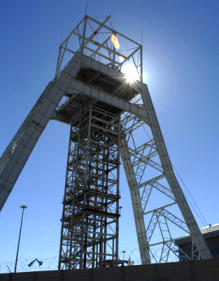
First, under what jurisdiction would they be prosecuted if they have contravened the US Foreign Corrupt Practices Act and/or South Africa’s Prevention and Combating of Corrupt Activities Act?
Second, in the US, shareholders can pursue a civil case against a company if they can demonstrate loss.
Would they do this before awaiting the outcome of any possible criminal investigation? And if so, would South African shareholders be able to follow suit?
Sick and Tired
Dear Sick and Tired,
Gold Fields is being investigated by the US Securities and Exchange Commission over a R2.1-billion BEE deal and the granting of a mining licence for its South Deep mine near Johannesburg.
Media reports suggest that a number of high-profile ANC members and government officials used their political standing to benefit from the deal. Gold Fields admitted last month that an independent investigation had found that the implementation of the transaction did not meet its own standards, but it denies the more serious allegations.
If there was bribery or corruption in the BEE deal, Gold Fields as well as the beneficiaries of the bribes could be sanctioned in South Africa under the Prevention and Combating of Corrupt Activities Act.
Gold Fields also falls under the scrutiny of US regulators because it is listed on the New York Stock Exchange. In particular, the company is subject to the Foreign Corrupt Practices Act, which prohibits the payment of bribes to foreign officials.
The US Department of Justice and the Securities Exchange Commission prosecute companies for breaches of the act even when the conduct occurred in other countries. The US authorities have aggressively applied their legislation and over the past few years corporations have paid millions of dollars in fines for corrupt activity.
The alleged corrupt conduct in the Gold Field’s BEE deal falls within the jurisdiction of both South Africa and the US.
US courts have held that a company can be prosecuted for the same conduct under the anti-corruption laws in two different countries. There are a number of cases in which a successful prosecution in the US has either preceded or followed a conviction in another country.
This means that when a company has engaged in corruption, it faces the risk of prosecution in each of the different countries where it operates.
This position is not universally accepted, and it is unclear at this stage whether the South African courts will take a similar view or what procedural safeguards a court would require if two actions were occurring simultaneously in different jurisdictions.
However, it is clear that the US courts would not regard a prosecution in South Africa as being a bar to pursuing their investigation or a criminal suit.
The US allows shareholders to bring civil claims against a company for losses they or the company incur as a result of corruption.
There are a number of ways the claim can be formulated and this may impact on whether other shareholders can join and benefit from the action.
In the normal course, shareholders will wait until the criminal action is complete. This allows the charge to be properly investigated and for shareholders to build their civil case upon the foundation of a successful prosecution.
As a South African shareholder, it is important for you to keep an eye on the legal process in both South Africa and abroad. International cooperation and recent developments in anti-corruption law ensure the maximum punishment for companies involved in corrupt activity, and this will affect shareholders across borders.
• This article was first published in Sunday Times: Business Times

